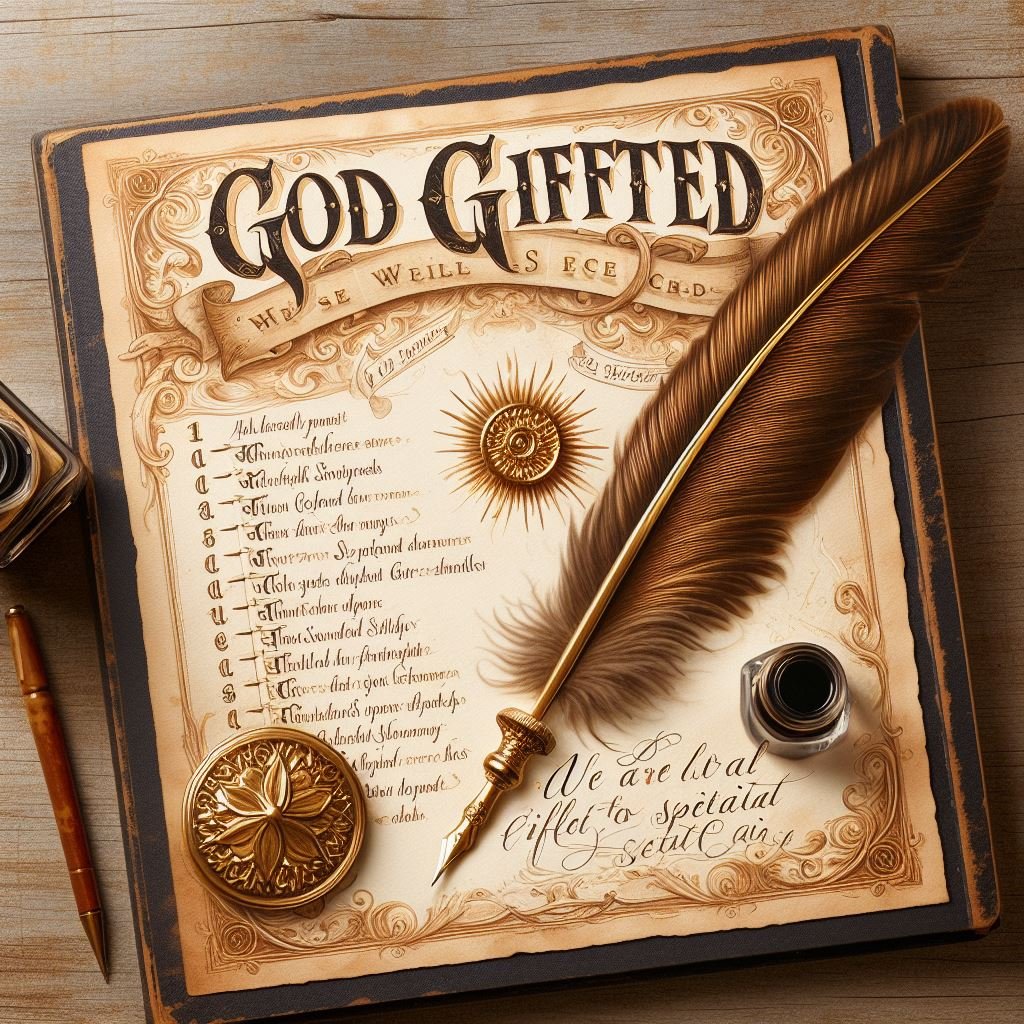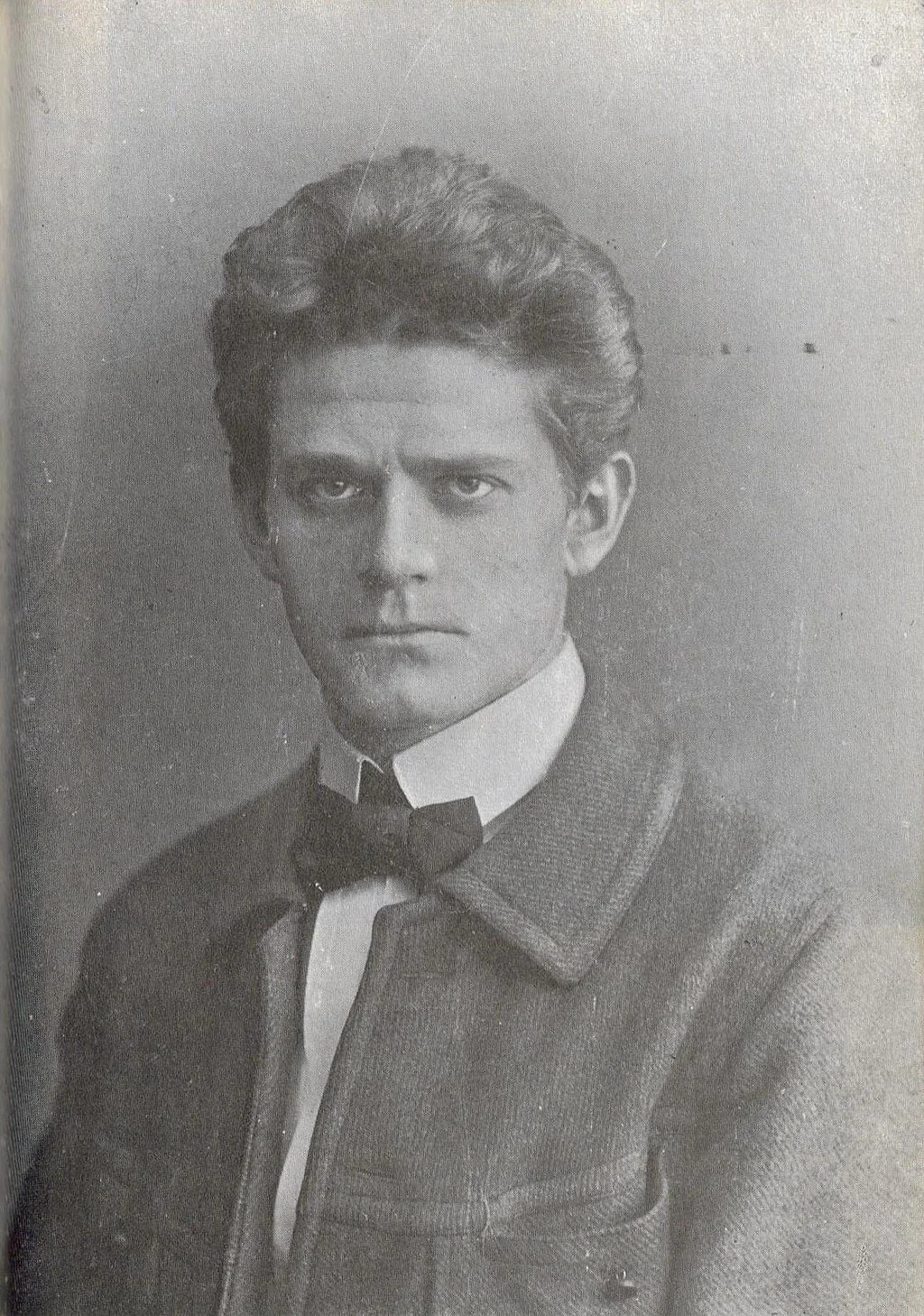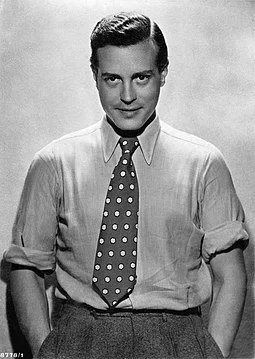
'list of those favored by God'.
The Gottbegnadeten-Liste
The Gottbegnadeten-Liste ("God-gifted list" or "Important Artist Exempt List") was a 36-page list of artists considered crucial to Nazi culture. The list was assembled in September 1944 by Joseph Goebbels, the head of the Ministry of Public Enlightenment and Propaganda, and Germany's chancellor Adolf Hitler.

History
The list exempted the designated artists from military mobilisation during the final stages of World War II. Each listed artist received a letter from the Nazi Propaganda Ministry which certified his or her status. A total of 1,041 names of artists, architects, music conductors, singers, writers and filmmakers appeared on the list. Of that number, 24 were named as especially indispensable; they thus became the equivalent of National Socialism's "national treasures".
Goebbels included about 640 motion picture actors, writers and directors on an extended version of the list. They were to be protected as part of his propaganda film efforts, which persisted through the end of the war (and culminating in the expensive final UFA production Kolberg, released in January 1945).
Many of the cultural figures appearing on the list are no longer widely remembered but there are exceptions, including a number of renowned classical musicians such as the composers Richard Strauss, Hans Pfitzner, and Carl Orff, the orchestral conductors Wilhelm Furtwängler and Herbert von Karajan, and the Wagnerian baritone Rudolf Bockelmann. The only foreigner (Ausländer) on the list was Dutch actor Johannes Heesters.
Sculptor Arno Breker
Friedrich Kayßler, one of the "irreplaceable actors" on the list
Writer Hans Grimm
Composer and pianist Walter Gieseking
Special listed artists
Architects
architect Leonhard Gall (1884–1952), "Reichskultursenator"
architect Hermann Giesler (1898–1987), "Reichskultursenator"
architect Wilhelm Kreis (1873–1955)
architect and critic Paul Schultze-Naumburg (1869–1949)
Visual artists
sculptor Arno Breker (1900–1991), named as "Reichskultursenator" (Reich Culture Senator)
sculptor Fritz Klimsch (1870–1960)
sculptor Georg Kolbe (1877–1947)
sculptor Josef Thorak (1889–1952)
history painter Arthur Kampf (1864–1950)
painter Werner Peiner (1897–1984)
Authors
Gerhart Hauptmann (1862–1946)
Hans Carossa (1878–1956)
Hanns Johst (1890–1979), "Reichskultursenator"
Erwin Guido Kolbenheyer (1878–1962)
Agnes Miegel (1879–1964)
Ina Seidel (1885–1974)
Musicians
Richard Strauss (1864–1949)
Hans Pfitzner (1869–1949)
Wilhelm Furtwängler (1886–1954)[2] (removed on December 7, 1944 because of his relationships with German resistance.[3])[better source needed]
Actors
Otto Falckenberg (1873–1947)
Gustaf Gründgens (1899–1963)
Johannes Heesters (1903–2011)
Friedrich Kayßler (1874–1945)
Eugen Klöpfer (1886–1950)
Hermine Körner (1878–1960)
Heinz Rühmann (1902–1994)
Heinrich Schroth (1871–1945)
Singers
Rudolf Bockelmann (1892–1958)
Josef Greindl (1912–1993)
Heinrich Schlusnus (1888–1952)
Wilhelm Strienz (1899–1987)
Peter Anders (1908-1954)
Further listed artists on the "Führerliste"
There was also an extended list, the so-called "Führerliste" that included "God-gifted artists" who were not to be drafted but worked as "Künstler im Kriegseinsatz" (artists in the war effort).
Authors
Hans Friedrich Blunck (1888–1961)
Friedrich Griese (1890–1975)
Josef Weinheber (1892–1945)
Gustav Frenssen (1863–1945)
Hans Grimm (1875–1959)
Max Halbe (1865–1944)
Heinrich Lilienfein (1879–1952)
Börries Freiherr von Münchhausen (1874–1945)
Wilhelm Schäfer (1868–1952)
Helene Voigt-Diederichs (1875–1961)
Composers
Johann Nepomuk David (1895–1977)
Werner Egk (1901–1983)
Gerhard Frommel [de] (1906–1984)
Harald Genzmer (1909–2007)
Ottmar Gerster (1897–1969)
Kurt Hessenberg (1908–1994)
Paul Höffer (1895–1949)
Karl Höller (1907–1987)
Mark Lothar (1902–1985)
Joseph Marx (1882–1964)
Gottfried Müller [de] (1914–1993)
Carl Orff (1895–1982)
Ernst Pepping (1901–1981)
Max Trapp (1887–1971)
Fried Walter (1907–1996)
Hermann Zilcher (1881–1948)[2][4]
Conductors
Hermann Abendroth (1883–1956)
Karl Elmendorff (1891–1962)
Robert Heger (1886–1978)
Oswald Kabasta (1896–1946)
Herbert von Karajan (1908–1989)
Johannes Schüler (1894–1966)
Karl Böhm (1894–1981)
Eugen Jochum (1902–1987)
Hans Knappertsbusch (1888–1965)
Joseph Keilberth (1908–1968)
Rudolf Krasselt (1879–1954)
Clemens Krauss (1893–1954)
Hans Schmidt-Isserstedt (1900–1973)
Carl Schuricht (1880–1967)
Instrumentalists
Ludwig Hoelscher (1907–1996), cellist
Elly Ney (1882–1968), pianist
Walter Morse Rummel (1887–1953), pianist
Günther Ramin (1898–1956), organist and choirmaster
Walter Gieseking (1895–1956), pianist
Wilhelm Stross (1907–1966), violinist
Gerhard Taschner (1922–1976), violinist
Theater and opera
Raoul Aslan (1886–1958), director and actor
Heinrich George (1893–1946), actor
Werner Krauß (1884–1959), actor
Karl-Heinz Stroux (1908–1985), actor and director
Heinrich Schlusnus (1888–1952), singer
Wilhelm Strienz (1899–1987), singer
Paula Wessely (1907–2000), actress
Fine Arts
Claus Bergen (1885–1964), marine painter
Ludwig Dettmann (1865–1944), war painter (member of the Berlin Secession)
Fritz Mackensen (1866–1953), painter
Franz Stassen (1869–1949), painter
Clemens Klotz (1886–1969), architect
Alfred Mahlau (1894–1967), painter
Ernst Neufert (1900–1986), architect
Bruno Paul (1874–1968), architect
Richard Scheibe (1879–1964), sculptor
Joseph Wackerle (1880–1959), sculptor
Painter Ludwig Dettmann
Actor Heinrich George
Conductor Herbert von Karajan
Actor Wolf Albach-Retty
Special film-list initiated by Goebbels
Wolf Albach-Retty (1908–1967)
Willy Fritsch (1901–1973)
Attila Hörbiger (1896–1987)
Viktor de Kowa (1904–1973)
Harry Piel (1892–1963)
Hans Albers (1891–1960)
Karl Dannemann (1896–1945)
O. W. Fischer (1915–2004)
Hans Holt (1909–2001)
Paul Hörbiger (1894–1981)
Ferdinand Marian (1902–1946)
Armin Schweizer (1892–1968)
Hermann Thimig (1890–1982)
A video of an exhibition of some on the list.








